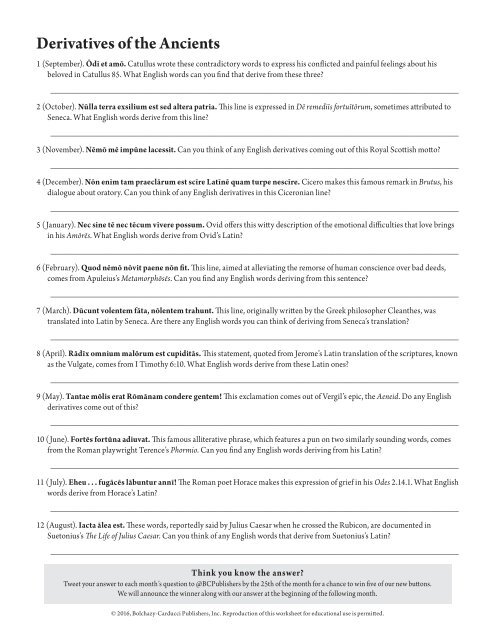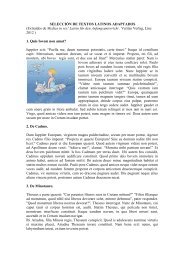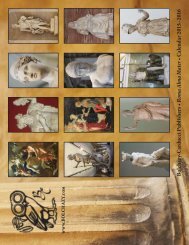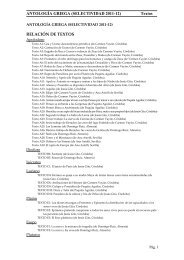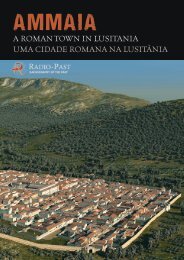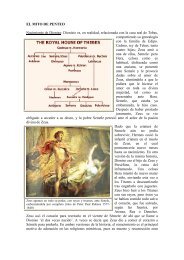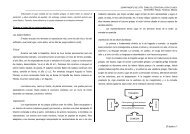www.BOLCHAZY.com
2016-2017RomanCalendar
2016-2017RomanCalendar
You also want an ePaper? Increase the reach of your titles
YUMPU automatically turns print PDFs into web optimized ePapers that Google loves.
Derivatives of the Ancients<br />
1 (September). Ōdī et amō. Catullus wrote these contradictory words to express his conflicted and painful feelings about his<br />
beloved in Catullus 85. What English words can you find that derive from these three?<br />
_______________________________________________________________________________________<br />
2 (October). Nūlla terra exsilium est sed altera patria. This line is expressed in Dē remediīs fortuītōrum, sometimes attributed to<br />
Seneca. What English words derive from this line?<br />
_______________________________________________________________________________________<br />
3 (November). Nēmō mē impūne lacessit. Can you think of any English derivatives <strong>com</strong>ing out of this Royal Scottish motto?<br />
_______________________________________________________________________________________<br />
4 (December). Nōn enim tam praeclārum est scīre Latīnē quam turpe nescīre. Cicero makes this famous remark in Brutus, his<br />
dialogue about oratory. Can you think of any English derivatives in this Ciceronian line?<br />
_______________________________________________________________________________________<br />
5 (January). Nec sine tē nec tēcum vīvere possum. Ovid offers this witty description of the emotional difficulties that love brings<br />
in his Amōrēs. What English words derive from Ovid’s Latin?<br />
_______________________________________________________________________________________<br />
6 (February). Quod nēmō nōvit paene nōn fit. This line, aimed at alleviating the remorse of human conscience over bad deeds,<br />
<strong>com</strong>es from Apuleius’s Metamorphōsēs. Can you find any English words deriving from this sentence?<br />
_______________________________________________________________________________________<br />
7 (March). Dūcunt volentem fāta, nōlentem trahunt. This line, originally written by the Greek philosopher Cleanthes, was<br />
translated into Latin by Seneca. Are there any English words you can think of deriving from Seneca’s translation?<br />
_______________________________________________________________________________________<br />
8 (April). Rādīx omnium malōrum est cupiditās. This statement, quoted from Jerome’s Latin translation of the scriptures, known<br />
as the Vulgate, <strong>com</strong>es from I Timothy 6:10. What English words derive from these Latin ones?<br />
_______________________________________________________________________________________<br />
9 (May). Tantae mōlis erat Rōmānam condere gentem! This exclamation <strong>com</strong>es out of Vergil’s epic, the Aeneid. Do any English<br />
derivatives <strong>com</strong>e out of this?<br />
_______________________________________________________________________________________<br />
10 (June). Fortēs fortūna adiuvat. This famous alliterative phrase, which features a pun on two similarly sounding words, <strong>com</strong>es<br />
from the Roman playwright Terence’s Phormio. Can you find any English words deriving from his Latin?<br />
_______________________________________________________________________________________<br />
11 (July). Eheu . . . fugācēs lābuntur annī! The Roman poet Horace makes this expression of grief in his Odes 2.14.1. What English<br />
words derive from Horace’s Latin?<br />
_______________________________________________________________________________________<br />
12 (August). Iacta ālea est. These words, reportedly said by Julius Caesar when he crossed the Rubicon, are documented in<br />
Suetonius’s The Life of Julius Caesar. Can you think of any English words that derive from Suetonius’s Latin?<br />
_______________________________________________________________________________________<br />
Think you know the answer?<br />
Tweet your answer to each month’s question to @BCPublishers by the 25th of the month for a chance to win five of our new buttons.<br />
We will announce the winner along with our answer at the beginning of the following month.<br />
© 2016, Bolchazy-Carducci Publishers, Inc. Reproduction of this worksheet for educational use is permitted.


